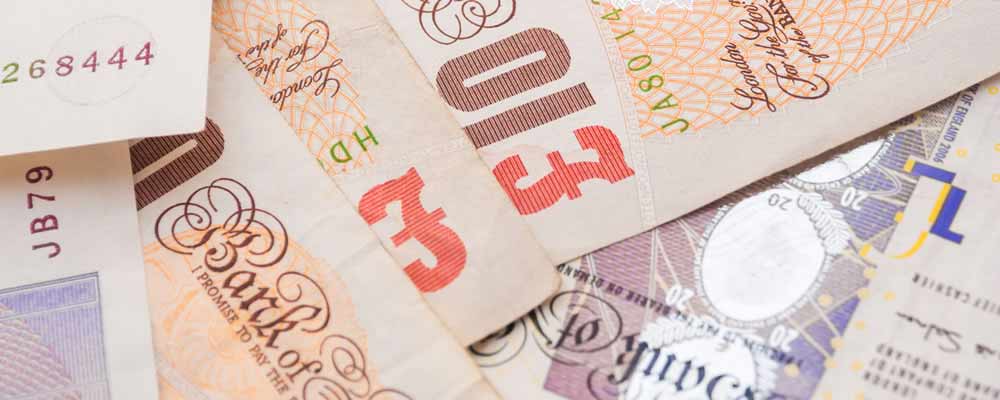The EUR GBP exchange rate recorded additional losses on Wednesday, sliding to 0.84 as the Pound broadly strengthened in response to easing Brexit concerns. However, on Thursday the Euro recouped 0.3% ahead of the release of German IFO sentiment gauges and UK CBI reports.
The Euro Pound exchange rate is currently trending in the region of 0.8529.
- EUR GBP Exchange Rate Fluctuates Around 0.86 – Pound recovery pushes pair down
- Eurozone PMIs Come in Mixed – German activity slows, but Eurozone improves overall
- Forecast: Final Q2 German GDP Ahead – Will final scores meet preliminary prints?
- Forecast: Sterling’s Recovery Rally Limited – How long will short-cover rally last?
(Previously updated 24/08/2016)
The EUR GBP exchange rate fell further from its best levels on Tuesday as investor profit-taking kept the Pound supported, resuming Sterling’s recovery rally that began on UK data last week. The Euro was able to mute Sterling’s advances thanks to a largely optimistic set of August PMI figures.
EUR/GBP has lost over half a cent since the week’s opening levels of 0.8660. While the sturdy Euro has done a decent job of holding the Pound back, it didn’t stop the pair from hitting its lowest level in almost two weeks, 0.8587, on Tuesday. The pair fluctuated around the level of 0.8590 on Tuesday afternoon.
Whether the pairing’s downtrend continues largely depends on today’s UK BBA Loans for House Purchase figure. If the figure comes in at or below forecast levels the Pound may soften against its most traded peers.
Euro (EUR) Exchange Rates Firm after Mixed Eurozone PMI Report
The Euro did a better job of muting the Pound’s advance attempts on Tuesday afternoon, thanks in part to August’s preliminary Eurozone Purchasing Managers’ Index (PMI) figures.
These PMIs are surveys that measure activity in various sectors of an economy. The Eurozone’s impressed in July as scores came in well above bearish expectations, indicating that the currency bloc had remained resilient to Brexit panic despite Britain’s Leave vote in June.
August’s preliminary figures largely continued this trend, once again indicating to markets that the bloc’s major nations had avoided Brexit damage. However, they did remind markets of the Eurozone’s pre-existing issues, as German Services plummeted from 54.4 to 53.3.
Overall, Eurozone activity was solid. Manufacturing slipped from 52 to 51.8, but Services improved from 52.9 to 53.1, avoiding an expected slip to 52.8. The Composite score also improved, beating forecasts of 53.1 by gaining from 53.2 to 53.3. According to Markit Chief Economist Chris Williamson;
‘The August flash PMI indicates that the Eurozone remains on a steady growth path in the third quarter, with no signs of the recovery being derailed by Brexit uncertainty.
The survey data are consistent with the region’s GDP growing at a quarterly rate of 0.3% in the third quarter, or 1.2% annualised, which is similar to that seen on average over the first half of the year.
… The resilience of the PMI in August will add to the belief that the ECB will see no need for any immediate further stimulus.’
However, Williamson also pointed out that expansion remains low and that the door will remain open for ECB stimulus as a result.
Pound (GBP) Advances in Short-Cover Trade
Despite the UK producing little in the way of inspiring data on Monday or Tuesday, the Pound was able to continue its advance on Tuesday.
This recovery began last week, as investors bought the currency from its cheapest levels after optimistic July data offered a buy-up opportunity.
This week’s short but sharp uptick in Pound movement has been due to ‘short-covering’, a form of profit-taking in which investors close short positions on a currency and buy it back at low levels.
The Pound’s advance may also have been boosted slightly on Tuesday by the latest trends report from CBI. Typically a low-influence report, it could have merely assisted with the upward movement. The BBC reported;
‘The UK’s manufacturing output eased back in the three months to August, according to the latest industrial trends survey from the CBI. …
The CBI’s survey of 505 firms found that export orders had been boosted by this year’s devaluation of the Pound.’
EUR GBP Exchange Rate Forecast: German Datasets Ahead
Will the Pound’s short-cover rally continue? Due to the nature of a short-cover rally, it is unlikely that Sterling will advance too far as many investors still bet against the Pound.
As a result, amid a lack of domestic data, the Pound may became increasingly limp in the coming days, allowing the Euro to take point in EUR/GBP movement.
Wednesday will see the publication of Germany’s final Q2 Gross Domestic Product (GDP) report, which is currently expected to meet preliminary scores of 1.8% monthly and 3.1% yearly.
This will be followed by one of the week’s only influential British prints, the BBA’s July home loans report which is expected to fall from 40,103 to 38,500.
Later in the week, more influential Eurozone stats include the IFO’s August German business sentiment report, with the GfK’s German consumer confidence survey results for September being published on Friday.
If Germany’s results print an optimistic trend this week, it could ease some of the concerns following Tuesday’s German PMIs and influence the EUR GBP exchange rate to advance.



